Premium Only Content
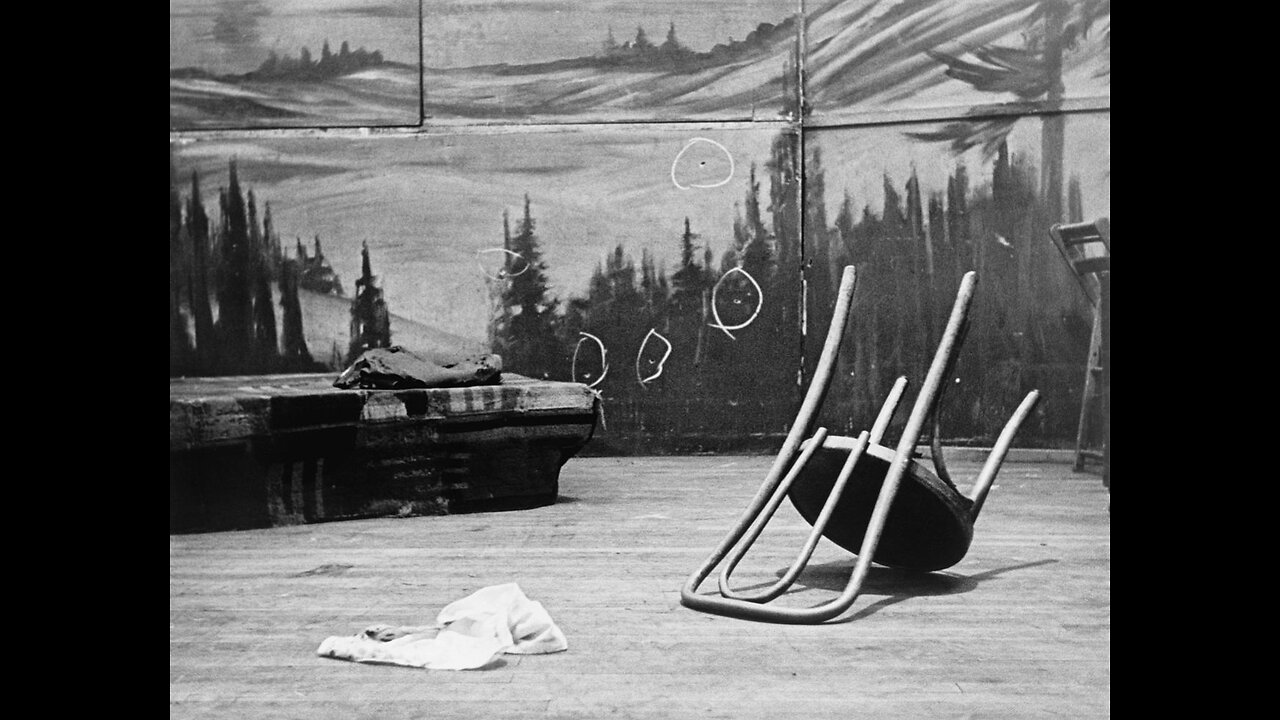
Assassinations Compilation: Ford / Reagan / MLK / JFK / Lee Harvey Oswald (1954-1994)
On November 1, 1994, Francisco Martin Duran fired over two dozen rounds from a semi-automatic rifle at the White House. Duran was standing outside the White House fence, and he aimed his shots at the building's north face. President Bill Clinton was not in the White House at the time of the shooting, and no one was injured.
After firing his weapon, Duran attempted to flee the scene but was quickly apprehended by Secret Service agents. In the aftermath of the shooting, Duran was charged with attempted assassination of the President, as well as other crimes related to the use of a firearm. During his trial, Duran claimed that he was acting on the orders of a higher power and that he was attempting to rid the world of evil.
Ultimately, Duran was found guilty of all charges and was sentenced to 40 years in prison. The incident sparked renewed concerns about the security of the White House and the safety of the President. The Secret Service, which is responsible for protecting the President and other high-ranking officials, conducted a thorough review of its procedures and implemented a number of changes to improve security.
On March 1, 1954, four Puerto Rican nationalists entered the United States Capitol building armed with handguns, and opened fire on a group of congressmen who were meeting in the House chamber. The attackers were members of the Puerto Rican Nationalist Party and were seeking to draw attention to their campaign for Puerto Rican independence.
During the attack, five congressmen were wounded, including Alvin M. Bentley, who was shot in the chest, and Kenneth A. Roberts, who was shot in the leg. The assailants, Griselio Torresola and Oscar Collazo, were also wounded, and Torresola ultimately died from his injuries. The attack ended when police officers and congressional officials returned fire, killing Collazo.
The attack shocked the nation and raised serious concerns about the security of Capitol Hill. The incident also drew renewed attention to the issue of Puerto Rican independence, which had been a source of controversy since Puerto Rico became a U.S. territory in 1898.
Following the attack, Congress took steps to increase security measures in and around the Capitol building, and the Secret Service was assigned to protect members of Congress. In Puerto Rico, the incident sparked protests and calls for independence, as well as a crackdown on nationalist groups by the U.S. government.
In the years that followed, the issue of Puerto Rican independence remained a contentious and divisive issue, with some arguing for greater autonomy and others calling for full statehood. The legacy of the 1954 attack on Capitol Hill continues to be felt in Puerto Rico and the United States, serving as a reminder of the complex history and ongoing struggles of the island and its people.
On September 5, 1975, Lynette "Squeaky" Fromme, a member of the Charles Manson cult, attempted to assassinate President Gerald Ford in Sacramento, California. Fromme approached Ford as he was walking to his limousine after delivering a speech at the California State Capitol, brandishing a .45-caliber handgun. Secret Service agents were able to disarm her before she could fire a shot.
Fromme was immediately arrested and charged with attempted assassination of the President. During her trial, Fromme claimed that she had not intended to kill Ford but had only wanted to draw attention to environmental issues. She also professed her devotion to Charles Manson and his apocalyptic beliefs.
Fromme was found guilty and sentenced to life in prison. In 1987, she briefly escaped from prison but was recaptured two days later. She was released on parole in 2009 after serving 34 years in prison.
The assassination attempt on Ford came just two weeks after another attempt on his life by Sara Jane Moore, a left-wing radical who fired a pistol at the President in San Francisco. Moore's shot missed its target, and she was also quickly apprehended by Secret Service agents. The dual attempts on Ford's life highlighted the vulnerability of the President and the need for increased security measures.
In response to the attacks, the Secret Service implemented a number of changes to its procedures and staffing, including increased surveillance and more thorough background checks for potential threats. The events also prompted a national conversation about political extremism and the dangers of radical ideologies.
On October 6, 1981, Egyptian President Anwar Sadat was assassinated during a military parade in Cairo. Sadat, who had been in power since 1970, had led Egypt through a period of significant political and economic change, including the signing of a peace treaty with Israel in 1979. However, his decision to make peace with Israel had angered many in the Muslim world, and he had received numerous death threats in the months leading up to his assassination.
The assassination was carried out by a group of Islamic extremists who had infiltrated the parade as soldiers. As Sadat reviewed the troops, the assassins opened fire with automatic weapons and threw grenades at the reviewing stand. Sadat was hit by several bullets and died later that day at a military hospital. Eleven others were also killed in the attack, and 28 were wounded.
The assassins were quickly apprehended and were tried and convicted of murder. The group, which called itself Islamic Jihad, had been founded in the late 1970s by a number of radical Islamists who opposed Sadat's policies and his efforts to modernize and secularize Egypt. The group had links to other extremist organizations in the Middle East and was later found to have been responsible for a number of other attacks and bombings.
The assassination of Sadat sent shockwaves through the international community and raised concerns about the rise of Islamic extremism in the region. It also led to a crackdown on Islamist groups in Egypt, with thousands of activists and militants being arrested and jailed. The assassination remains a significant event in the history of the Middle East, and its legacy can still be felt in the ongoing conflicts and tensions in the region.
On December 8, 1980, John Lennon, the legendary musician and former member of The Beatles, was shot and killed outside of his apartment building in New York City. Lennon had just returned from a recording session with his wife, Yoko Ono, and was walking into his apartment when he was approached by a man named Mark David Chapman. Chapman, who had been waiting for Lennon outside of the building, pulled out a gun and fired four shots at Lennon, hitting him in the back.
Lennon was rushed to the hospital but was pronounced dead on arrival. Chapman, who had remained at the scene of the shooting and was arrested by police, later claimed that he had carried out the assassination because he was angry at Lennon for his outspoken political views and his perceived betrayal of the ideals of The Beatles.
The assassination of John Lennon shocked the world and led to an outpouring of grief from fans and musicians around the globe. Lennon was widely regarded as one of the greatest musical talents of his generation and had been a vocal advocate for peace and social justice. His death was seen as a tragic loss and a reminder of the dangers of fanaticism and violence.
Chapman was tried and convicted of second-degree murder and was sentenced to 20 years to life in prison. He remains incarcerated to this day and has been denied parole multiple times. The assassination of John Lennon continues to be remembered and commemorated by fans and musicians around the world, and his music and legacy continue to inspire new generations of artists and activists.
Arjun Doss was a prominent Indian Congressman who was assassinated in 1985 in Tamil Nadu, a state in southern India. Doss was a Member of Parliament and a leading figure in the Congress Party in Tamil Nadu. He was known for his advocacy of social justice and his commitment to improving the lives of marginalized communities.
On July 18, 1985, Doss was attending a public meeting in the town of Kodumudi when he was shot and killed by two gunmen who had been waiting for him outside the meeting venue. The assassination was a shock to the Indian political establishment, and there was widespread outrage and condemnation.
The investigation into the assassination revealed that the gunmen were members of a radical Tamil nationalist group known as the Liberation Tigers of Tamil Eelam (LTTE). The LTTE had been waging a violent insurgency against the Sri Lankan government, which they accused of discriminating against Tamil minority communities in Sri Lanka.
The assassination of Arjun Doss was seen as a significant escalation in the violence and political turmoil in Tamil Nadu and Sri Lanka. The Indian government responded by cracking down on Tamil nationalist groups and increasing security measures to prevent further violence.
The assassination site in Kodumudi has since become a place of pilgrimage for many Congress Party supporters and others who admire Arjun Doss's legacy. The site features a memorial to Doss, and visitors come to pay their respects and remember his life and work. The assassination of Arjun Doss remains a significant event in the political and social history of Tamil Nadu and India, and its impact can still be felt today.
George Shultz was the Secretary of State of the United States under President Ronald Reagan from 1982 to 1989. In 1988, Shultz was the target of an assassination attempt while visiting Bolivia, a country in South America.
The assassination attempt took place on June 25, 1988, when Shultz was visiting the Bolivian city of La Paz. As Shultz was leaving a meeting with Bolivian President Victor Paz Estenssoro, a group of armed gunmen opened fire on his motorcade. The gunmen, who were believed to be members of a leftist guerrilla group called the Tupac Katari Guerrilla Army, fired at least 26 shots at Shultz's car.
Despite the intensity of the attack, Shultz was unharmed. His car was heavily armored, and his security detail was able to quickly respond and repel the attackers. Two Bolivian security officers were injured in the attack, but no one was killed.
The assassination attempt on George Shultz was widely condemned by world leaders and marked a significant escalation in the violence and political turmoil that was then gripping Bolivia. The incident also highlighted the dangers faced by American officials who were working to promote American interests and values abroad.
Following the assassination attempt, Shultz continued his diplomatic efforts in the region, working to promote democracy and human rights in Bolivia and other countries in South America. The incident also led to increased security measures for American officials traveling abroad and reinforced the importance of diplomatic efforts in promoting peace and stability around the world.
Hendrik Verwoerd was a prominent South African politician who served as Prime Minister of South Africa from 1958 until his assassination in 1966. Verwoerd was a leading figure in the apartheid regime that governed South Africa at the time, and he was known for his staunch defense of white minority rule.
On September 6, 1966, Verwoerd was attending a parliamentary session in Cape Town when he was approached by a white parliamentary messenger named Dimitri Tsafendas. Tsafendas suddenly lunged at Verwoerd with a knife, stabbing him four times before being tackled and subdued by other members of parliament.
Despite the efforts of doctors to save him, Verwoerd died a few hours later from his injuries. The assassination of Verwoerd was a shock to the South African political establishment and was widely condemned by leaders around the world.
Tsafendas, who was of Greek and Mozambican heritage, was immediately arrested and charged with the murder of Verwoerd. He was later found to have been suffering from mental illness at the time of the attack and was never executed for the crime.
The assassination of Hendrik Verwoerd was a significant event in the history of South Africa, marking a turning point in the struggle against apartheid and fueling a growing sense of resistance and opposition to the regime. The incident also highlighted the dangers and tensions that were present in South African society at the time and underscored the need for peaceful and democratic change in the country. Today, the assassination site is marked with a plaque and is visited by tourists and locals alike as a reminder of the struggle for freedom and justice in South Africa.
Yitzhak Rabin was an Israeli politician who served as the country's Prime Minister from 1974 to 1977 and again from 1992 until his assassination in 1995. Rabin was a key figure in the Israeli-Palestinian peace process and was widely respected for his efforts to promote peace and stability in the region.
On November 4, 1995, Rabin was attending a peace rally in Tel Aviv when he was approached by a Jewish extremist named Yigal Amir. Amir, who was opposed to Rabin's efforts to make peace with the Palestinians, fired three shots at Rabin, striking him in the back and fatally wounding him.
Despite the efforts of medical personnel to save him, Rabin died a short time later from his injuries. The assassination of Rabin was a shock to the Israeli and international communities and was widely condemned by leaders around the world.
In the aftermath of the assassination, Israel was plunged into a period of mourning and reflection, and the peace process that Rabin had worked so hard to promote was put on hold. Amir was immediately arrested and later sentenced to life in prison for his role in the murder of Rabin.
On March 30, 1981, President Ronald Reagan was leaving a speaking engagement at the Washington Hilton Hotel when he was shot and wounded by a would-be assassin named John Hinckley Jr. The shooting occurred just 69 days into Reagan's first term as President.
Hinckley, who had become obsessed with the actress Jodie Foster, believed that by shooting Reagan he would impress her and win her affection. He fired six shots at Reagan as the President was walking to his limousine, striking him in the chest and puncturing his lung.
Reagan was rushed to a nearby hospital, where he underwent emergency surgery and made a full recovery. Three other people were also injured in the shooting, including White House Press Secretary James Brady, who was left paralyzed from the waist down.
Hinckley was immediately apprehended and later found not guilty by reason of insanity. He was committed to a psychiatric hospital, where he remained for more than 30 years before being released in 2016.
Vernon Jordan is an American civil rights leader, lawyer, and business executive. In 1980, Jordan survived an assassination attempt outside a hotel in Fort Wayne, Indiana.
At the time, Jordan was the president of the National Urban League, a civil rights organization dedicated to promoting equal opportunities for African Americans. He was in Fort Wayne to deliver a speech when he was shot by a sniper in the parking lot of the Marriott Hotel.
The bullet entered Jordan's back and exited from his chest, causing him to collapse in a pool of blood. Fortunately, Jordan was rushed to a nearby hospital and underwent surgery to remove the bullet. He made a full recovery and returned to his duties at the National Urban League shortly thereafter.
The identity of the sniper who shot Jordan remains a mystery to this day, although some believe that the attack was racially motivated. The incident sparked outrage and condemnation from civil rights leaders across the country, who saw it as an attack on the entire movement for racial equality.
Malcolm X, born Malcolm Little, was a prominent civil rights leader and activist in the United States in the mid-twentieth century. He was a vocal advocate for black nationalism and self-defense, and his speeches and writings inspired many African Americans to take up the fight for racial equality.
On February 21, 1965, Malcolm X was assassinated while delivering a speech at the Audubon Ballroom in New York City. As he began to speak, three gunmen rushed the stage and opened fire, hitting Malcolm X multiple times in the chest and other parts of his body.
Malcolm X was rushed to a nearby hospital, where he was pronounced dead a short time later. The assassination shocked the country and sent shockwaves throughout the civil rights movement.
Although the identity of the gunmen was initially unclear, it was later revealed that they were members of the Nation of Islam, the religious and political movement that Malcolm X had left several years earlier. The assassination was believed to be retaliation for Malcolm X's criticism of the Nation's leader, Elijah Muhammad, and his departure from the group.
Dr. Martin Luther King Jr. was a civil rights leader, Baptist minister, and social activist who played a crucial role in the American civil rights movement. He was known for his nonviolent approach to protesting racial injustice, and his speeches and writings inspired millions of people around the world.
On April 4, 1968, Dr. King was assassinated in Memphis, Tennessee, while standing on the balcony of the Lorraine Motel. He had come to Memphis to support a strike by sanitation workers, and had been staying at the motel for several days.
The assassination of Dr. King sent shockwaves throughout the country and the world, and sparked widespread outrage and grief. Riots and protests erupted in many cities across the United States, and people of all races and backgrounds mourned the loss of this great leader.
The identity of the assassin was quickly discovered. James Earl Ray, a white supremacist and career criminal, was arrested and charged with the murder. Ray initially pleaded guilty to the crime, but later recanted his confession and claimed that he was set up by a shadowy organization.
Despite Ray's claims, he was convicted of the murder and sentenced to 99 years in prison.
On May 15, 1972, George Wallace, the Governor of Alabama and a controversial figure in American politics, was shot and severely wounded while campaigning for the Democratic Party's presidential nomination in Laurel, Maryland. The assassination attempt left him paralyzed and effectively ended his political career.
The shooter, Arthur Bremer, was a 21-year-old drifter who had become obsessed with Wallace and his anti-establishment message. He had followed Wallace on the campaign trail for weeks, and had even planned to kill the Governor at an earlier event in Maryland, but had lost his nerve.
On the day of the shooting, Bremer approached Wallace as he was shaking hands with supporters outside a shopping center. He pulled out a revolver and fired five shots at the Governor, hitting him four times in the chest and abdomen. Three other people were also wounded in the attack.
Bremer was quickly apprehended by bystanders and arrested by police. He later confessed to the shooting, and was sentenced to 63 years in prison for attempted murder.
The assassination of President John F. Kennedy on November 22, 1963, is one of the most infamous and controversial events in American history. Kennedy was riding in a motorcade through Dealey Plaza in Dallas, Texas, when he was shot and killed by Lee Harvey Oswald, a former Marine and self-proclaimed Marxist.
The assassination was a national tragedy that sent shockwaves throughout the United States and the world. Kennedy was a popular and charismatic leader who had inspired a generation of Americans with his vision of a more just and peaceful society. His death was a tremendous loss for the country and left a lasting impact on American politics and culture.
The circumstances of Kennedy's assassination have been the subject of much debate and controversy over the years. Some have argued that Oswald acted alone, while others believe that he was part of a larger conspiracy involving other individuals or organizations.
Despite numerous investigations and inquiries, the truth behind Kennedy's assassination remains elusive. The Warren Commission, which was appointed by President Lyndon B. Johnson to investigate the assassination, concluded that Oswald acted alone. However, many people remain skeptical of this conclusion and continue to search for answers to this day.
On November 24, 1963, two days after Kennedy's assassination, Oswald, the suspected gunman, was being transferred from Dallas Police Headquarters to the Dallas County Jail. As he was being escorted through the basement of the police station, Ruby, a local nightclub owner, stepped forward and shot Oswald at point-blank range.
The assassination of Oswald by Ruby was captured live on national television, and it shocked and outraged many Americans who had already been traumatized by Kennedy's death. Ruby claimed that he had acted out of grief and anger over Kennedy's assassination, and that he had not been part of any larger conspiracy.
However, many people have questioned Ruby's motives and speculated about his possible connections to organized crime, political groups, or the government itself. Some have suggested that Ruby may have been part of a larger conspiracy to silence Oswald and prevent him from revealing what he knew about Kennedy's assassination.
Despite numerous investigations and inquiries, the truth behind Ruby's assassination of Oswald remains elusive. Ruby himself died in 1967 while in police custody, further fueling speculation and conspiracy theories.
-
 31:00
31:00
The Memory Hole
8 months agoThe Perils of a Life of Dirty Tricks in the CIA (1978)
1.84K -
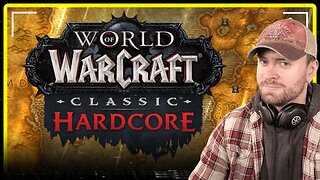 LIVE
LIVE
MattMorseTV
1 hour ago🔴Gaming Sunday🔴
186 watching -
 LIVE
LIVE
Nerdrotic
2 hours agoTransient Lunar Phenomenon: Deeper into the Mysteries of the Moon | Forbidden Frontier #112
548 watching -
 2:58:44
2:58:44
Barry Cunningham
1 day agoBREAKING NEWS: PRESIDENT TRUMP ABSOLUTELY TROLLS THE MEDIA! BIG WEEK AHEAD!
48.7K65 -
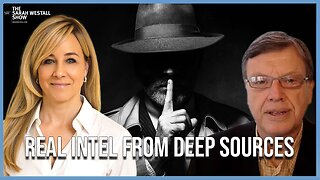 1:37:28
1:37:28
Sarah Westall
2 hours agoReal Intel: Power Struggles Fueled by Blackmail, Surveillance & Coercion w/ Dr. Dave Janda
7.95K5 -
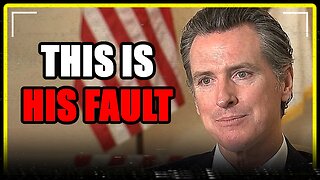 9:49
9:49
MattMorseTV
4 hours ago $8.86 earnedNewsom's CAREER just WENT UP IN FLAMES.
12.8K49 -
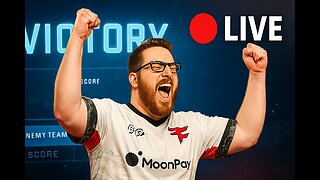 LIVE
LIVE
Spartan
2 hours agoHalo for a bit, Octopath after maybe
110 watching -
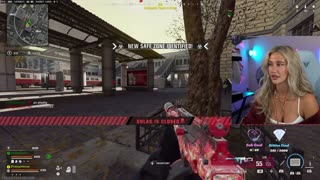 3:49:55
3:49:55
sophiesnazz
3 hours ago $1.46 earned6kd in these lobbies !socials !specs
16.7K1 -
 LIVE
LIVE
Vedic compatability astrology
2 hours agoAbijit Shuckla: The Epic 8, 17, 25 Adventure!
79 watching -
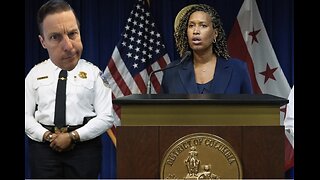 1:17:18
1:17:18
Jeff Ahern
4 hours ago $12.62 earnedThe Sunday Show with Jeff Ahern
33.2K6